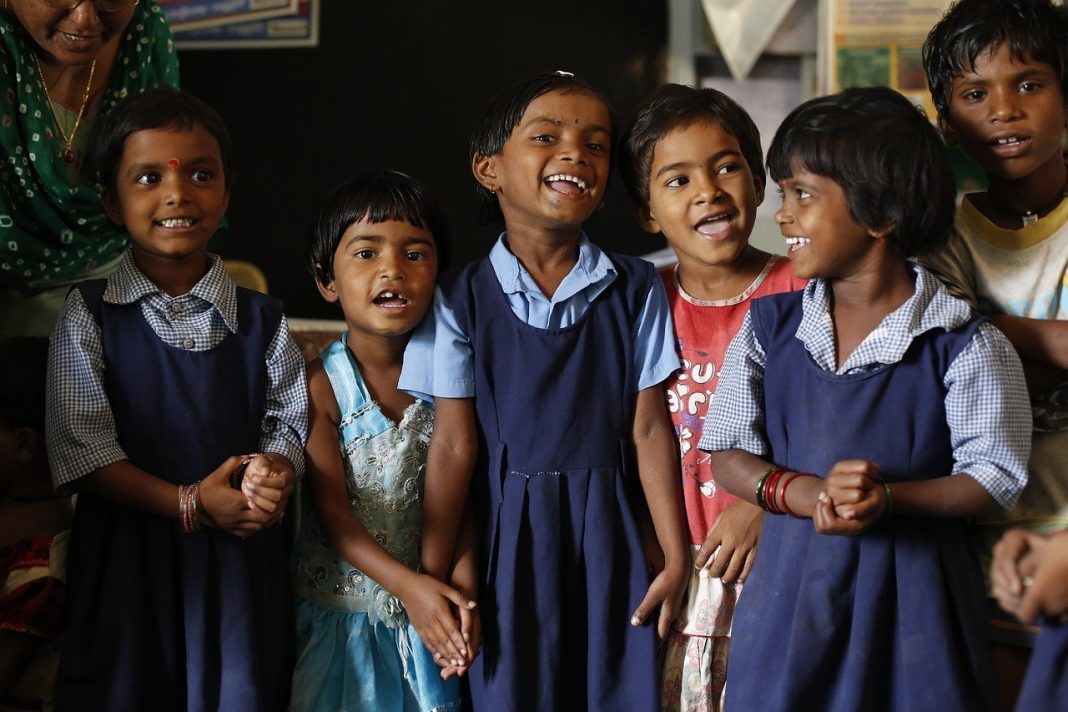
The New Education Policy (NEP) heavily emphasises early childhood care and education (ECCE). While it sees the government-run Anganwadi system as the primary vehicle for implementing ECCE, it has also served as a shot in the arm for India’s already burgeoning private pre-school and early education sector. I suggest that the policy’s vision of ECCE is problematic and the justifications for it are insufficient. Moreover, such a vision of ECCE may have unintended detrimental effects.
The NEP lays out plans for a formal curriculum and teacher training modules for ECCE. This is justified in two main ways. The first being that over 85% of brain development occurs before the age of 6. Therefore, providing appropriate care and stimulation during this critical period can prepare children for entry into class 1 and lay the foundation for success in the education system. The second is that quality ECCE is out of reach for socio-economically disadvantaged groups (SEDGs). Hence, ensuring that these groups have access to ECCE will lead to a more equitable education system, given the role of ECCE in laying the foundation for one’s entire educational journey. This line of reasoning is well known in the American education policy circles as ‘school-readiness’ and seems to be inspired from it.
Let us consider the first justification. While it is true that a huge chunk of brain development does take place before age 6, any paediatrician will tell you that this happens independent of any specific kind of input. As long as a child has adequate nutrition and does not experience any major emotional or physical trauma, the brain is primed to develop rapidly at this age. It certainly does not require any formal curriculum, trained educators or specially designed toys, activities or apps.
Then does teaching numbers, shapes, colours and reading to young children, like the NEP promises to, have no benefit at all to preparing for school? That is not true either. It is indeed beneficial, but the reason it is so is not because these are the ‘appropriate’ kinds of input children should be receiving. It is because this type of knowledge is what is valued in today’s schools. This indicates a flaw in the second justification which is based on the promise of educational equity. Since several decades, scholars have noted that schools largely promote the knowledge valued by the middle classes, which is typically verbal and bookish. Middle class parents, such as myself, spend several hours a day telling stories to their pre-school age children, pointing out names of animals, birds, colours and shapes. Working class children, on the other hand, are taught more practical and physical kinds of knowledge. For example, children may acquire knowledge about the various activities and skills involved in cooking, running a shop or farming and may even assist their parents by the age of 6. Thus, the knowledge that groups pass on to their young are a function of their collective histories and vary greatly. However, the school system favours middle class knowledge over that of other groups and hence these children enter the school system with an inherent advantage.
To bring about equity in education, we must work towards a school system that values the knowledge of various groups, not just that of the middle class. Along with this, we should specially focus on groups whose histories do not include a deep-seated culture of reading and writing. If special interventions for disadvantaged groups are to be carried out during the pre-school stage then this may be done through short-term, light-touch programmes involving parents and Anganwadi workers.
By promoting the idea that 3-6 year olds need to go through a formal curriculum implemented by trained teachers so that their brain development can be optimised and they can be readied for class 1, the policy inadvertently encourages the unregulated and exploitative market for pre-school institutions and materials. As a mother of a toddler, I regularly come across marketing material that promises to develop my child’s fine-motor or socio-emotional skills etc. if I were to only enrol them in a particular class or purchase a particular product, and without which my child’s progress in these skills may be sub-optimal. In the last year, the market for early learning apps and at-home activity kits has exploded.
It is hard to resist such marketing tactics. But we must remind ourselves and our policy-makers that young children primarily learn from their natural urge to explore the world around them. And if the goal is to make our education system more equitable, then rather than readying children for a biased school system, we must instead make schools ready for them, no matter what background they come from.
Shruti Shankar is a doctoral student at National Institute of Advanced Studies, Bengaluru.









